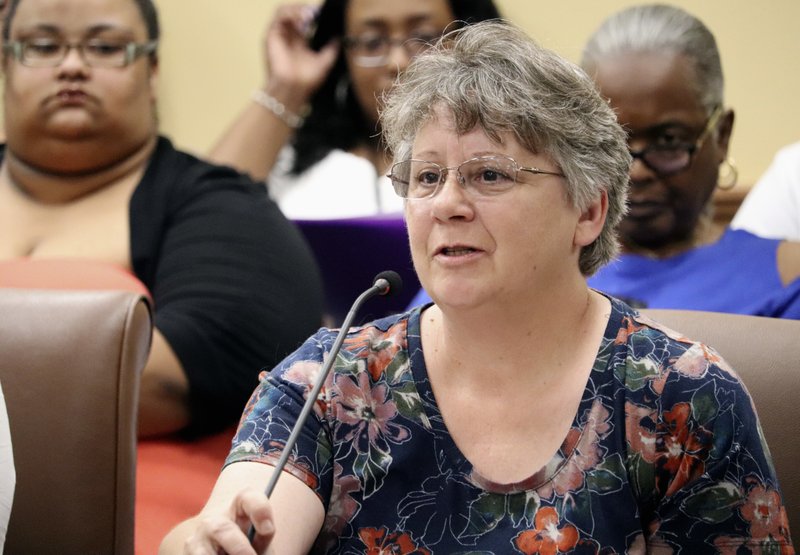LITTLE ROCK -- More than a dozen Arkansas residents with relatives in the state's prison system aired their complaints at a legislative meeting Thursday, telling lawmakers about a lack of rehabilitation, unwieldy visitation procedures and shabby health care.
A subcommittee of the Arkansas Legislative Council set up the meeting to address a variety of problems in the state-run prison system, including contraband smuggled into facilities.
A number of people complained their relatives were receiving inadequate health care. Debbie Holt, mother of two incarcerated sons, said one of her sons is diabetic and is not receiving proper insulin treatment. She said his blood sugar is regularly too high, which has caused him to go legally blind.
"Medical can't seem to grasp how dangerous this is," Holt told the subcommittee. "I'm probably going to lose my son at an early age because ADC (Arkansas Department of Correction) can't get it together medically."
In response, department officials said that there is always room for improvement, but correction department Director Wendy Kelley also said that "sometimes inmates lie to their family members."
Many people said the inmates did not have access to sufficient rehabilitation programs like higher education or drug counseling. Theresa Martin said her incarcerated son isn't getting the physical or mental care he needs. "They need counseling, they need treatment, every single day," she said.
Family members who visit inmates also said personal and car searches were invasive. Two women described having to remove their bras because the underwire or clasps set off the metal detectors.
Correction officials said they had hoped a larger staff would make prisons safer and also talked about steps correctional officers take to prevent increased smuggling of K2, a dangerous synthetic drug.
Use of K2 has supplanted use of all other drugs, Kelley said. Because the drug can be smuggled in by soaking letters in liquefied K2, which are then smoked or chewed, the department has implemented a new mail policy. Inmates no longer receive original letters, but photocopies of the first two pages, a policy Kelley said was "very unpopular," but necessary. In 2017, there was an average of 95 K2-related incidents -- from locating the drug to finding someone under the influence -- each month. That's now down to 63 per month through May.
Arkansas' prisons saw a string of violent disturbances last year. Three guards were assaulted at two facilities in September and three guards were held hostage in August.
State Desk on 06/17/2018